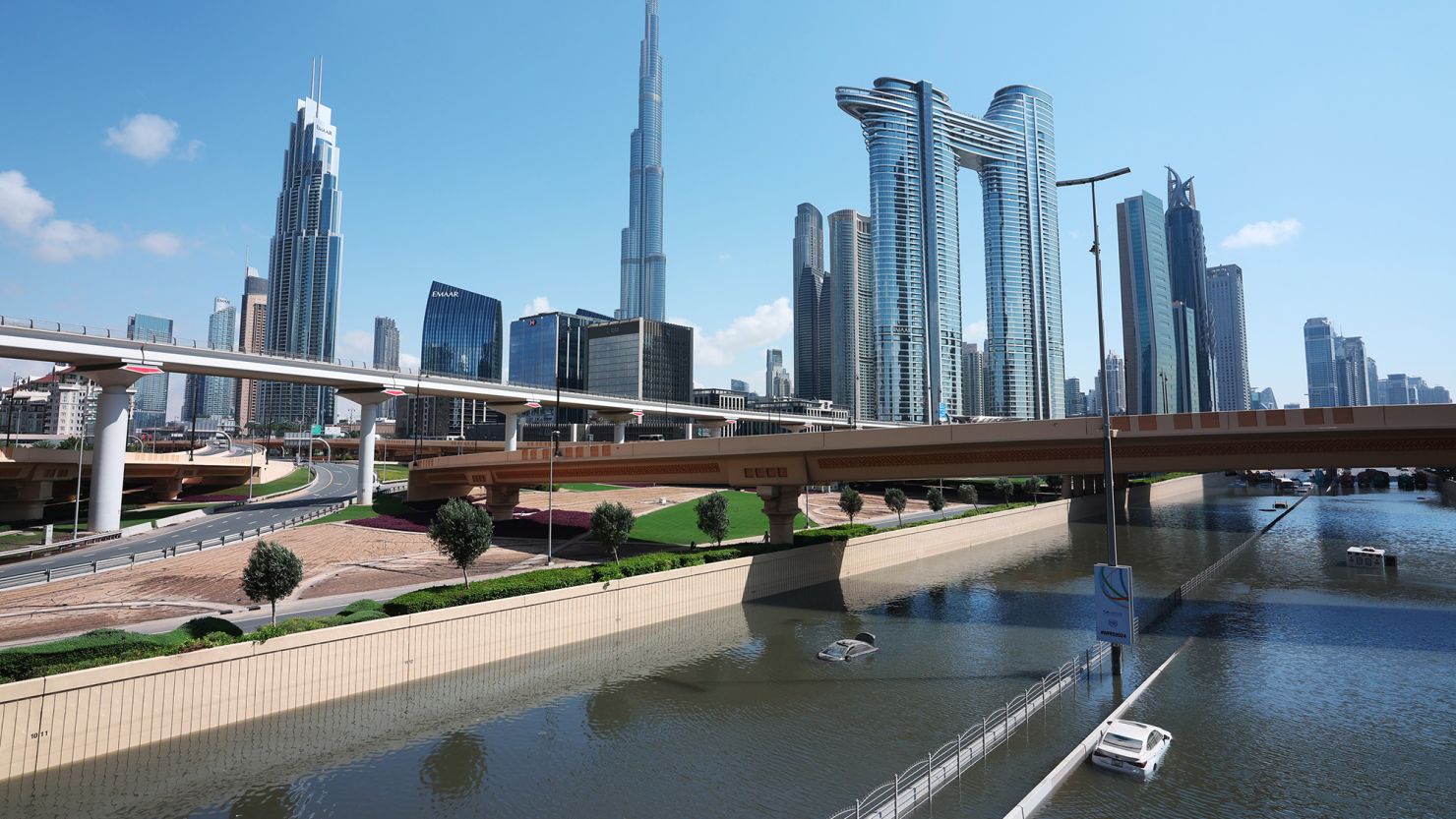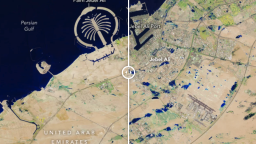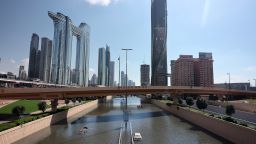The record-breaking rain that fell over the United Arab Emirates and Oman this month, triggering deadly floods and chaos, was driven partly by the climate crisis, according to a scientific analysis published Thursday, which pointed directly at humans burning fossil fuels.
A team of 21 scientists and researchers, under the World Weather Attribution initiative, found that climate change was making extreme rainfall events in the two countries — which typically fall during El Ni?o years — between 10 and 40% more intense than they would have been without global warming.
Over a period of less than 24 hours between April 14 and 15, the United Arab Emirates experienced its heaviest rainfall in since records began?75 years ago. Dubai —?a glitzy desert city accustomed to going months with no precipitation at all —?experienced the equivalent of more than a year and a half’s worth of rain in that time, the analysis said.
Using scientific models, the team was unable to determine precisely how much more likely climate change had made the floods.
However, they concluded global warming was the “most likely” driver of the record rainfall, because the atmosphere in a 1.2-degree warmer world can now hold 8.4% more moisture, which is making extreme rain events more intense. Changing circulation patterns driven by global warming are also increasing rainfall intensity, the analysis noted.
Global warming was the only remaining reason they could identify to explain the heavier downpour.
The floods killed four people in the UAE, and at least 19 others in Oman, including 10 children whose school bus was swept away in the deluge. The extreme weather caused pockets of flooding in several parts of the UAE that could be seen in satellite images from space.
The floods also brought widespread disruption across Dubai. More than 1,000 flights due in and out of Dubai’s airport —?the second-busiest in the world —?were canceled, and days of delays followed. People were forced to abandon their vehicles on roads inundated by the floods. Three Philippine women working in Dubai died in their car, trapped by waters gushing down the street.
The city’s luxurious malls sprung leaks as rainwater seeped through ceilings, and elevators stopped functioning in skyscrapers, forcing residents to climb stairs up dozens of floors. Unable to return home, some motorists slept in their cars due to blocked roads.
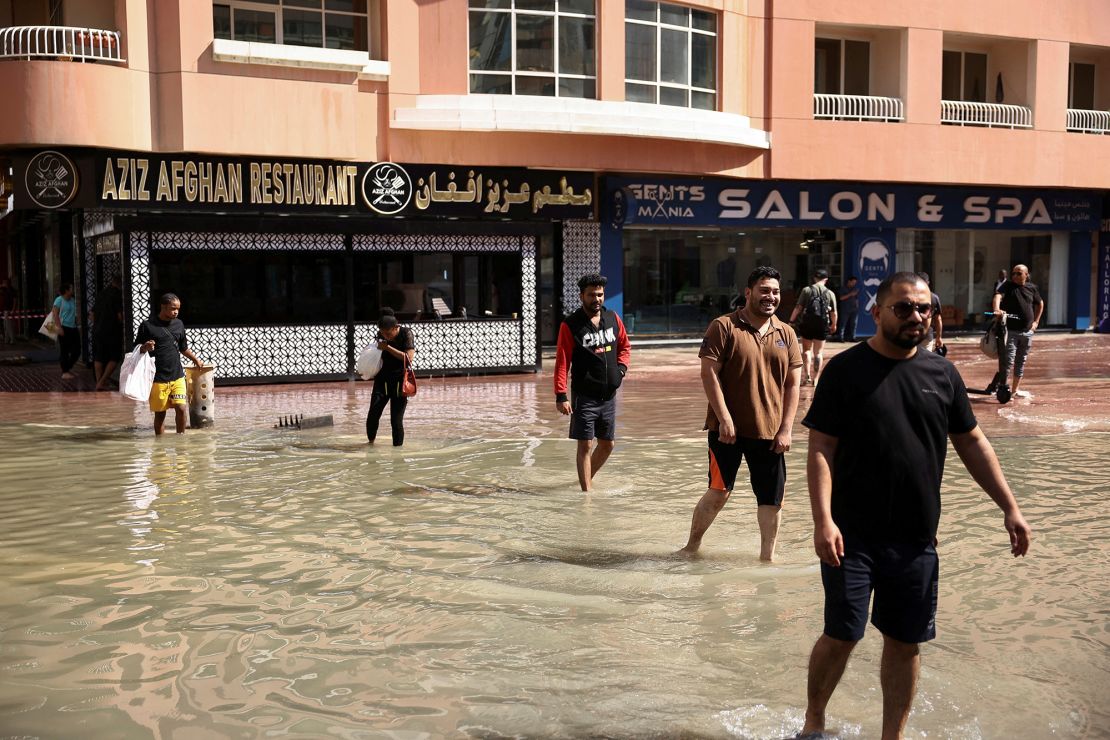
“The UAE and Oman floods have shown that even dry regions can be strongly affected by precipitation events, a threat that is increasing with increasing global warming due to fossil fuel burning,” said Sonia Seneviratne, a professor at the Institute for Atmospheric and Climate Science in Zurich.
The heavy rain across the two countries came from two separate, powerful, storm systems, said Mansour Almazroui from the King Abdulaziz University’s Center of Excellence for Climate Change Research in Jeddah, Saudi Arabia.
He added that record ocean temperatures were playing a role in supercharging the storms.
“The Indian Ocean is getting warmer. And the high pressure in the Indian Ocean is surely contributing the rainfall,” he told reporters.
The Arabian Peninsula, on which the UAE and Oman sit, occasionally experiences intense bouts of rain in April and May from what’s known as mesoscale convective systems —?several thunderstorms that together act as a single weather system.
Friederike Otto, Senior Lecturer in Climate Science at the Grantham Institute in London, said that studies note that these storms are increasing in frequency.
El Ni?o —?a natural oscillation in ocean temperatures that impacts global weather — was also a driving factor in the April rain event, Otto said. However, the focus must be on slowing climate change, she added.
“While we can’t stop El Ni?o, we can stop climate change,” Otto said. “The solution is to stop burning fossil fuels, to stop deforestation,” she said. Deforestation is responsible for at least 12% of global carbon pollution.
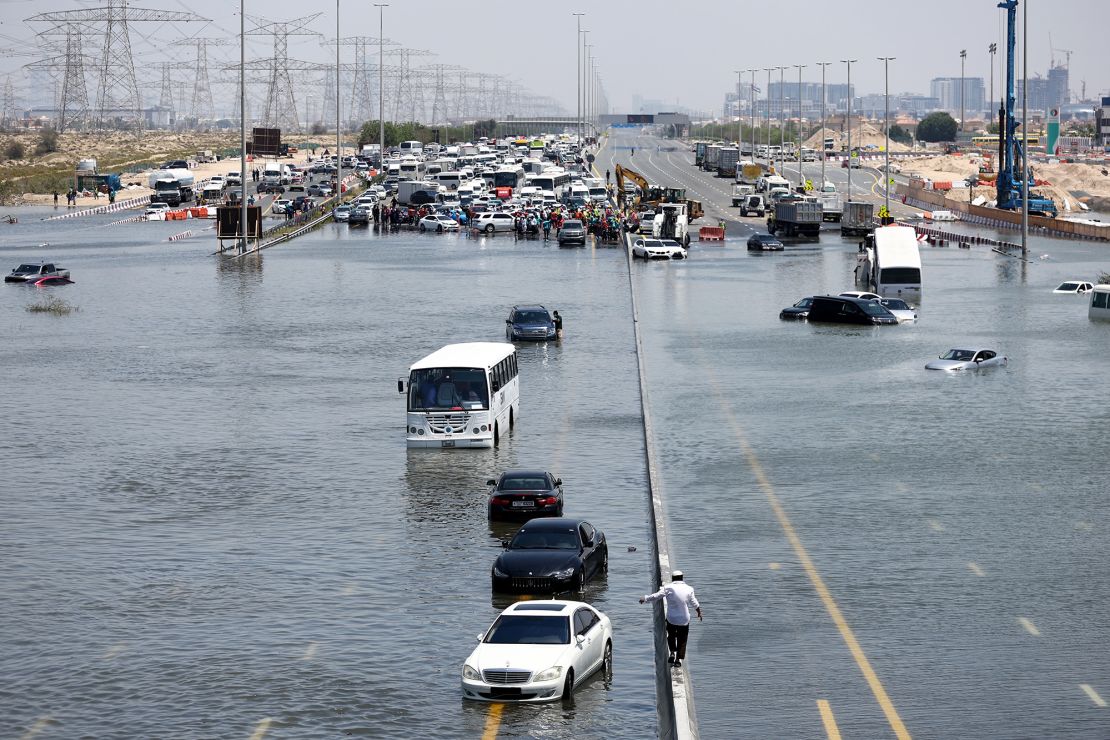
The UAE’s state-owned energy company, ADNOC, has plans for a major expansion of oil and gas production, as CNN has previously reported. The country was widely criticized for electing ADNOC’s CEO, Sultan Al-Jaber, to chair the UN-backed international climate talks in Dubai last year.
The talks had some success, with almost every nation agreeing the world should transition away from fossil fuels.
But many fossil fuel-rich countries are still extracting huge volumes of planet-heating coal, oil and gas, and some are even planning to explore for more oil and build new infrastructure. The International Energy Agency has said the world must end new fossil fuel projects if it wants to limit global warming to 1.5 degrees Celsius, a global science-based goal at the center of the 2015 Paris Agreement.
Nearly half a year on from the climate talks, “countries are still opening new oil and gas fields,” Otto said. “If the world keeps burning fossil fuels, rainfall in many regions of the world will get heavier and heavier, resulting in deadlier and more destructive floods.”
CNN’s Abbas Al Lawati contributed to this report from Dubai.
